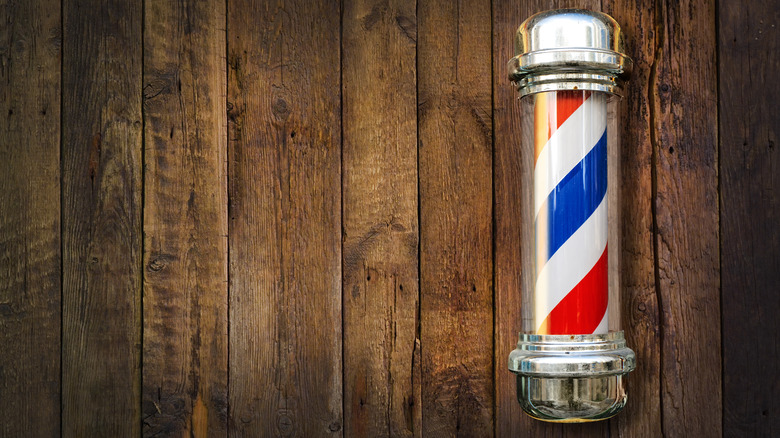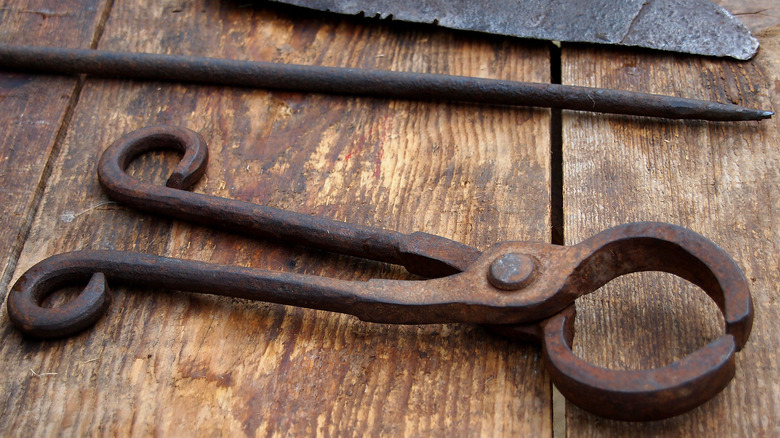Why Being A Medieval Barber Was One Of The Most Disgusting Jobs In History
The medieval period isn't exactly known for its high standards of personal hygiene. While it's not necessarily true that everybody was entirely bathing-averse during this period (according to The Vintage News, the well-to-do of society enjoyed bathhouses, private attendants, and considered the whole thing a bit of a social occasion at times), humanity lacked a crucial understanding of the causes of disease.
However, this doesn't mean that they didn't try to take care of themselves, or that medical care (such as it was) wasn't available. Both at the very same place, in a lot of instances. Today, it might be unthinkable that a barber would perform rudimentary operations on top of their familiar shaving and hair-cutting duties, but such was the lot of a medieval barber.
History goes on to explain that, in medieval medicine, much revolved around the blood. If patients supposedly had "too much," this was believed to be the cause of all manner of diseases that just weren't understood yet. National Geographic reports that the dangerous practice of bloodletting has been going on since the time of the Ancient Egyptians, and while it does continue to have very limited uses, leeches were the answer to various ills in the Middle Ages.
The ghastly duties of the barber surgeon
History also reports that, with Pope Alexander III forbidding monks (who were in charge of a lot of hospital medical care at the time, per Ancient Origins) from engaging in bloodletting as of 1136, barbers took on the grim duty. They also attempted to bandage injuries and extracted teeth, all of which had a tendency to be bloody, dirty, and generally awful.
According to Ancient Origins, with doctors and surgeons having very disparate roles at the time, and with the former very rarely conducting physical care, people became more and more reliant on barber-surgeons as an accessible alternative.
They would reportedly test the urine of their patients, often by tasting it, they would aid in the birth of babies, and they would regularly perform amputations. With the rudimentary tools available at the time, and with the people in their care entirely conscious throughout, it's difficult to imagine just how traumatizing and horrific the job of a medieval barber-surgeon would have been.

